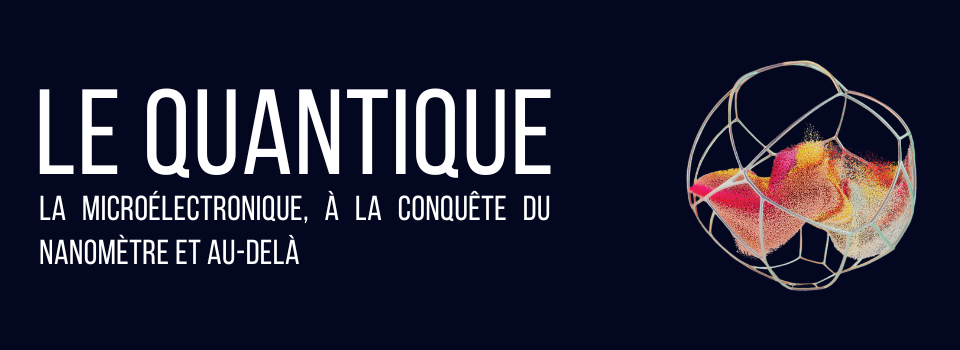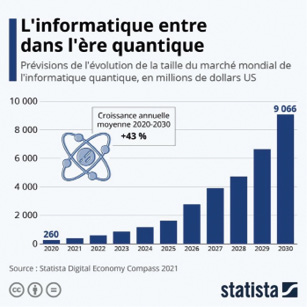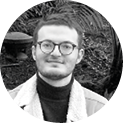
Discovering Quantum Computing
Over thepast decade, the field of quantum computing in France has undergone remarkable development .
France's commitment to this cutting-edge technology, aimed at solving complex optimization problems, is reflected in an acceleration of university research and investment enabling the emergence of start-ups. The government's determination to make France a true "start-up nation" has amplified this dynamic, catalyzing a veritable blossoming of start-ups specializing in quantum computing. Take Pasqal, for example, which designs quantum processors that exploit the unique properties of cold atoms. Likewise, Alice&Bob is setting itself apart by striving to create a universal, error-free quantum computer.
Alongside a dazzling number of new start-ups in quantum computing, a dynamic, collaborative environment has emerged in France. Initiatives such as the Paris Centre for Quantum Computing, which promotes collaboration between researchers, engineers and entrepreneurs, have stimulated growth in this sector. Add to this strategic partnerships between start-ups and technology giants, as well as collaborations with universities and research centers, and you have an acceleration in the development of innovative quantum technologies.
We can cite several cutting-edge technologies, such as quantum computers, quantum cryptography or quantum networks, although many others exist. However, many of these technologies are based on a single advance: the qubit. The qubit, the unit of quantum information, combines the three fundamental principles of quantum physics: superposition, destructive measurement and quantum entanglement. Quantum superposition enables qubits to perform parallel calculations on different values at the same time, and quantum entanglement enables information to be processed collectively, opening up the possibility of more complex and powerful calculations. This wave of technological growth, supported by a robust ecosystem and the ambition to remain at the forefront of the quantum revolution, demonstrates the vitality of the quantum computing sector in France.
The impact of this rapid growth is not limited to technology and industry alone. It also extends to education and training, preparing a new generation of engineers and researchers to face the unique challenges of quantum computing. Many leading institutions, such as École Polytechnique and Télécom Paris, have incorporated specific quantum computing modules into their curricula, training the future leaders in this field. What's more, alumni networks and interactions between universities, start-ups and research institutions create a virtuous circle that feeds the sector. This focus on education and research, coupled with the emergence of start-ups in quantum computing, underlines France's determination to play a central role in the global competition for quantum supremacy, illustrated by the massive €2 billion investment announced by the government in 2021.
The first step in our quest to discover the best French start-up in quantum computing was to understand the global landscape of this technology, and the market in which it is embedded. In economic terms, the global quantum computing market is expected to reach nine billion US dollars by 2030, with an annual growth rate of over 40%, according to data from Statista.

The aim was to gain a clear perspective of this technology, its future and France's position in relation to other major global players. This involved a detailed analysis of recent developments, technological advances and market trends in quantum computing. By adopting a global approach, we were able to grasp the context in which French start-ups are evolving, and appreciate the degree of innovation and ambition they display in relation to their international competitors.
The second step was to identify all French start-ups active in quantum computing. To do this, we implemented several methods to gather an exhaustive database. We started by searching on reference platforms such as Crunchbase and LinkedIn. Then, we consulted information from various investment funds, or used tools such as Jolt Capital's Ninja. In addition, we targeted incubators specializing in the quantum field, as well as more generalist ones that had potentially hosted promising projects. The idea was to gather as much information as possible on these companies. The data collected was then organized into individual sheets for each start-up, providing a coherent and detailed overview. At this stage, we eliminated companies that were too recent and had little information available, concentrating on those with a more established history and technology, and more accessible data.
Next, we sought to understand the specific challenges of each pre-selected start-up. Each company was carefully categorized according to its predominant areas of expertise, strategic objectives and proven track record. We then consulted industry experts, providing essential insights to refine our understanding of the unique challenges each player might face. We would like to express our gratitude to Romain Alléaume, professor at Télécom Paris and a specialist in quantum computing, for his invaluable contributions. These fruitful exchanges enabled us to select the most promising companies for the long term, retaining the top five.
More in-depth interviews were then conducted with the CEOs and investors of these selected start-ups to understand their perspectives and ambitions. This intensive research phase provided a fresh perspective on how each company saw its growth trajectory and its contribution to the advancement of quantum computing. Based on these rich exchanges, we were able to establish a top three list of the most promising start-ups in the French quantum ecosystem, each accompanied by a detailed recommendation on our part, based on the judicious cross-fertilization of our in-depth analysis with the enlightened perspectives of industry experts.
In short, our rigorous, collaborative approach to the Technological Innovation Prize has led us to distill an enlightened selection of the most remarkable and influential companies on the French quantum scene, while offering a privileged glimpse into the exciting future of this constantly evolving discipline. 

Lisa LLORET
is a 3rd year engineering student, specializing in Data Science, Economics and Strategic Management. Having completed a degree in Physics before joining Télécom Paris, she was able to rededicate herself to this fascinating subject: quantum, and learn more about the field of quantum computing and its applications. Thanks to the PTN, and also with an economic appetite, she had fun dissecting the economic environment of this innovative sector.

Guillaume PAYA-MONET
is a 3rd year engineering student, specializing in Data Science, Theoretical Computer Science and Operations Research. He has a keen interest in Quantum Computing, having completed several internships in the industry, and the PTN prize has enabled him to develop his understanding of the issues at stake on a global scale.

























